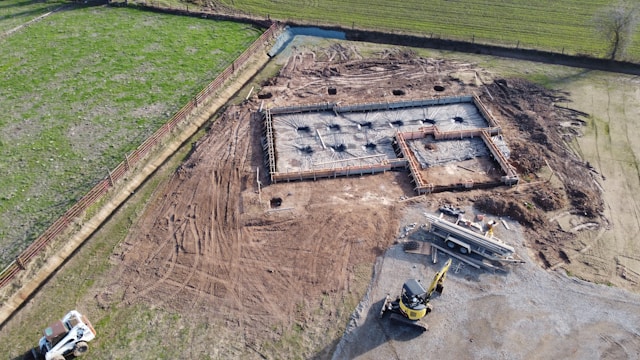Key Takeaways:
- Understanding the role of structural engineering in project success.
- Key services provided by structural engineering firms.
- The importance of safety and compliance in structural integrity.
- Advancements in engineering technology enhance project outcomes.
- Selecting the right engineering partner for your construction goals.
Foundation of Safety: The Role of Structural Engineering
Many details must align when erecting a new structure to ensure its success, safety, and stability. Integral to this process is the expertise of a licensed structural engineer Austin, TX, whose vital role stretches across numerous facets of the project. These professionals are responsible for ensuring that structures are aesthetically pleasing and, more critically, sound enough to endure the challenges of nature and time. By delving deep into material science and applying sophisticated mathematical calculations, structural engineers guarantee that the edifices we live in, work within, and admire are safe havens against unpredictable forces.
Core Services: From Analysis to Oversight
A structural engineering firm’s core services are an encompassing suite that caters to every phase of construction, from pre-construction analysis right through to the physical erection of the structure. It starts with thorough site analysis and feasibility studies, assessing soil quality and topography to forecast the project’s practicality. These preliminary evaluations are critical, as they inform the ensuing design choices, including materials, structural systems, and foundational elements, ensuring the envisioned structure has the potential to be brought to fruition safely and effectively.
Following these initial stages, structural engineers develop detailed designs, leveraging their technical expertise to curate frameworks that balance cost-efficiency and robust architecture. These designs become the blueprint for the construction team, laying down a guiding schema that will take shape into the intended structure. The role of the structural engineer transitions here to one of meticulous oversight; they closely monitor the construction process, ensuring that the workmanship adheres to the design specifications and prevailing construction standards.
Material Selection and Load Analysis
The selection of materials is a nuanced decision that involves understanding various properties such as strength, durability, and environmental impact. A structural engineer optimizes these material choices to suit the project’s requirements best while working within budgetary constraints. Intricate load analysis is another pivotal service wherein the structural engineer determines the load-bearing capabilities necessary to sustain the building’s weight and the dynamic forces it will encounter, like wind and seismic activity. The outcomes of these analyses directly contribute to the long-term resilience and safety of the construction.
Forensic Analysis and Retrofitting
In cases where buildings show signs of structural weakness or after an unfortunate collapse, forensic analysis is brought into the equation. Structural engineers meticulously diagnose the failures to pinpoint the exact cause of the problems. This knowledge is the foundation for retrofitting plans that reinforce and rejuvenate existing structures, thus extending their life span and conforming them to newer, stricter building codes. It is a testament to these specialists’ foresight and adaptability to the construction field.
Compliance and Safety: Non-Negotiable Aspects
For structural engineers, adherence to regulatory compliance and safety protocols is an inalienable aspect of their professional duties. Ensuring that every structural facet aligns with national and local building codes is not just about fulfilling legal obligations; it’s about affirming a commitment to the security and well-being of future inhabitants. Engineers work tirelessly to mitigate structural risks through rigorous analysis, testing, and site inspections, ensuring our towers are fortified sanctuaries against evident and latent dangers.
Technological Innovations in Structural Engineering
In an era where technology permeates every aspect of life, structural engineering has seen an infusion of innovative tools that revolutionize the way structures are conceived, designed, and constructed. For instance, advanced software platforms like Building Information Modeling (BIM) provide a multi-dimensional, collaborative environment where each building element can be visualized and analyzed before construction. These technology-driven advancements ensure greater precision and efficiency in engineering tasks. They are paving the way for smarter, more sustainable buildings, as reported in a comprehensive piece by ASCE News. By adopting these advancements, the engineering field enhances modern structures’ resilience, functionality, and environmental compliance.
Choosing the Right Engineering Ally
With the many engineering firms available, selecting the one that will align with your project vision and deliver exemplary results can be daunting. It’s critical to choose a partner who understands the complexities of your project and has a track record of delivering innovative, reliable solutions. Scrutinizing their previous work, approach to problem-solving, and capacity to work collaboratively with other construction professionals will steer you toward the correct choice. A firm that excels in technical competence and demonstrates integrity, transparency, and commitment to client satisfaction will be indispensable as you embark on your construction journey.
Construction’s Future with Structural Engineering
As we look to the future, it is abundantly clear that structural engineers will continue to be pivotal figures in the advancement of construction. As cities sprawl and demand for innovative, eco-friendly buildings rises, the expertise and ingenuity of these professionals will be more crucial than ever. From spearheading sustainable design initiatives to integrating adaptive technologies, structural engineers are set to play a defining role in crafting the future of our built environment. Through a harmonious blend of aesthetics, functionality, and sustainability, the partnership between architectural ambition and engineering excellence will define the next generation of construction, creating a legacy of structures that do more than stand the test of time—they elevate our experience of the world.


